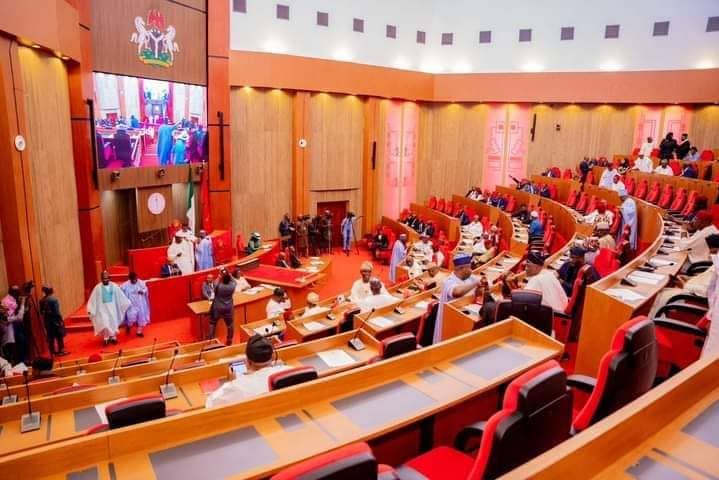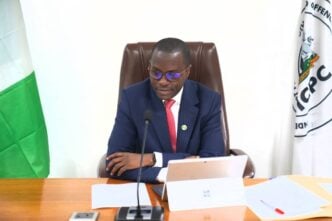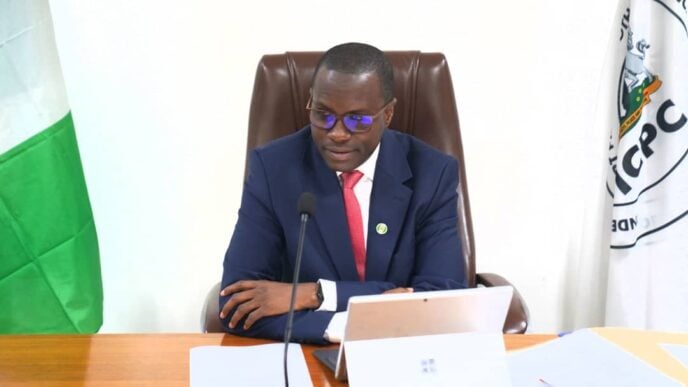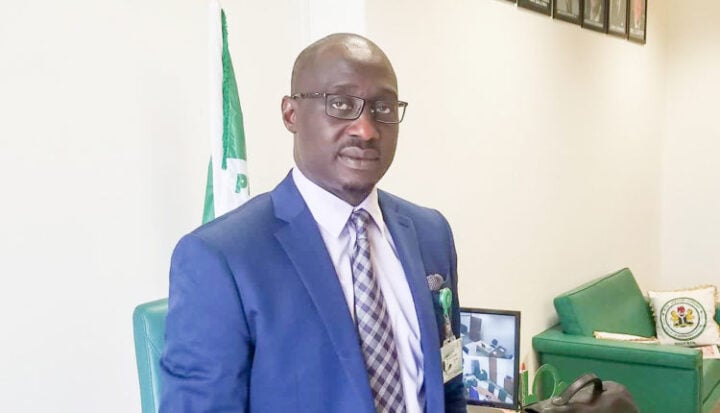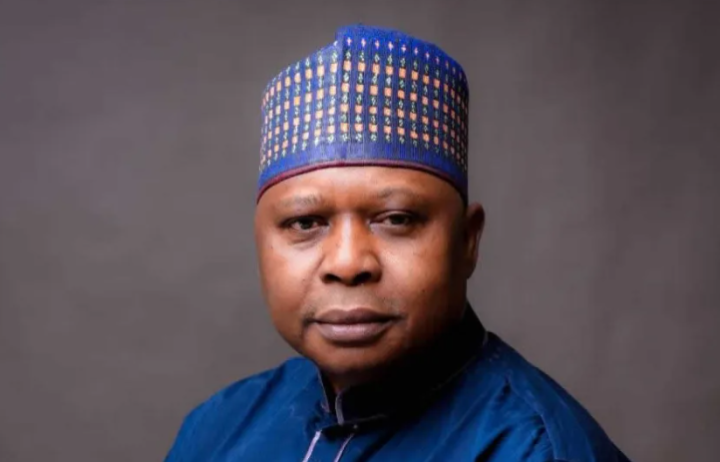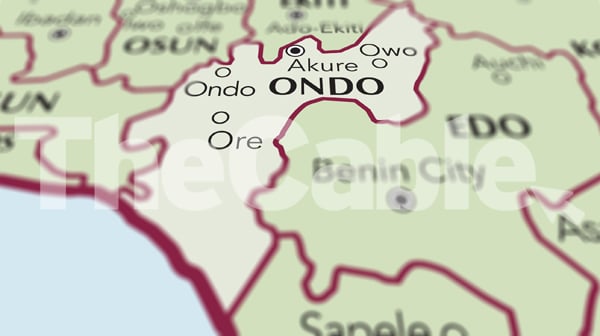The senate | File photo
A bill seeking to repeal the Electoral Act 2022 and enact a new Electoral Bill 2025 passed the second reading at the senate on Wednesday.
On October 16, the senate stepped down the bill to allow broader consultation and deeper scrutiny of its provisions after an extensive debate on its general principles.
On October 14, Opeyemi Bamidele, senate majority leader, said the amendment of the Electoral Act 2022 would be completed on or before December 2025.
Senate President Godswill Akpabio announced the passage during Wednesday’s plenary after a majority of senators voted in support of the proposed legislation through a voice vote.
Advertisement
Akpabio said more work is needed to achieve full transparency in Nigeria’s electoral process.
“INEC must be made responsible because they are the ones in possession of electoral materials. We’ve had improvements, but we need to do more,” he said.
He then put the bill to a voice vote, and it was unanimously adopted by the senators.
Advertisement
Following its passage, the bill was referred to the senate committee on electoral matters for further consideration and a public hearing.
The committee, chaired by Simon Lalong, senator representing Plateau south, was directed to report back within two weeks.
Lalong, who sponsored the bill, said the proposed legislation seeks to strengthen the legal framework governing elections in Nigeria.
He explained that while the Electoral Act 2022 introduced major reforms, it also exposed certain weaknesses, including delays in the release of election funds, disputes over voter register, conflicting interpretations of result transmission, and weak enforcement of electoral offences.
Advertisement
According to him, the new bill aims to enhance the independence of the Independent National Electoral Commission (INEC) by insulating it from political interference and government control.
LAWMAKERS’ CONTRIBUTIONS
Abdul Ningi, senator representing Bauchi central, said the bill would promote greater participation and transparency.
“Whatever that will add value to our electoral system, whatever that will open the window for participation of citizens, we must do it to capture the essence of democracy,” Ningi said.
Advertisement
Adamu Aliero, senator representing Kebbi north, said the new legislation must remove inconsistencies and ensure that “whatever is the true reflection of the people is what will be announced”.
“We are tired of seeing a situation where, during elections, some politicians will move with arms and ammunition, harassing and intimidating opponents,” Aliero said.
Advertisement
Orji Kalu, senator representing Abia north, called for a clear definition of the role of security agencies during elections.
“Nigerian people are tired. After how many years of democracy, we are still going to court when people win or lose elections,” he said.
Advertisement
“Let the election be credible. We should go back to BVAS and improve BVAS; the technology is very good, but it is wrongly used by our people.”
Tahir Munguno, senator representing Borno north and senate chief whip, said transparent party primaries are crucial to credible elections.
Advertisement
“This Electoral Act seeks to regulate the conduct of party primaries so that candidates reflect the wishes and aspirations of the people,” he said.
Agom Jarigbe, senator representing Cross River north, described the legislation as “a turning point in our democracy.”
“If we do not repeal and enact the electoral act, we will be faced with incongruities in the existing law,” he said.
Olalere Oyewunmi, senator representing Osun west and deputy minority leader, stressed the need for stiffer penalties for electoral offenders.
“The new act should have sufficient punishment for electoral offenders so that it will serve as a deterrent,” he said.
Ali Ndume, senator representing Borno south, said reviewing the electoral framework is crucial to restoring public confidence.
“So far, Nigerians have spoken about the need to look at our Electoral Act because that lays the foundation for credible elections,” he said.
Seriake Dickson, senator representing Bayelsa west, said the sustainability of Nigeria’s democracy depends on credible elections.
“If that fails, then we will only be a democracy in name,” he said.
A COMPREHENSIVE ELECTORAL OVERHAUL
The proposed amendments include compulsory electronic voting, mandatory electronic transmission of results, early voting for essential workers, and the replacement of the permanent voter card (PVC) with alternative identification such as the national identification number (NIN) and passport.
The amendments also include provisions for diaspora voting, the creation of an Electoral Offences Commission, and enhanced INEC independence.
Lawmakers say the goal of the amendment is to restore public trust, modernise Nigeria’s elections, and ensure that every vote counts in future polls.
On October 6, Enyinnaya Abaribe, senator representing Abia south, said the Nigerian judiciary has failed to keep pace with the technological innovations introduced by the electoral umpire.
Abaribe said the problem with Nigeria’s electoral system is not the technology but the interpretation of laws by the courts.
